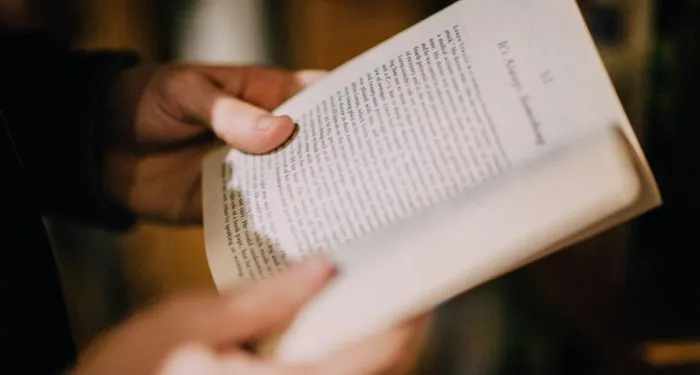For the past forty-six years, since the Iranian Revolution of 1979, the enmity between Iran and the United States has been a major factor in Middle East politics. Washington objects to Iran’s nuclear and ballistic missile programs and its support for Hezbollah in Lebanon, the Houthis of Yemen, and other members of the “axis of resistance” to Israel and the US in the region. It has armed and given intelligence to Iran’s enemies, tried to destroy its economy, and assassinated its most influential military strategist and commander, all without formally espousing regime change.
For Israel’s leaders the danger posed by Iran helps to justify their claims on American friendship, money, and protection. Détente between Washington and Tehran would threaten the favored status of the Jewish state. Saudi Arabia and other Gulf monarchies have long opposed any deal between the two that would, as they see it, diminish pressure on Iran and allow it to more easily propagate its brand of Shia militancy in their Sunni-dominated polities. In Iran the allure of a “grand bargain”—a deal that, through an inspired resolution of all the issues, lays the enmity to rest—is so intense that politicians have sabotaged and exposed the efforts of their rivals to achieve it.
Grudges and unpleasant memories have also stood in the way. Ayatollah Ali Khamenei, Iran’s supreme leader, has been fulminating and plotting against the “Great Satan” ever since, as a young cleric, he helped overthrow Shah Muhammad Reza Pahlavi, a US client. Iranian anti-Americanism increased when the US supported Saddam Hussein’s Iraq in its eight-year war with the nascent Islamic Republic in the 1980s.
On the American side, the hostage crisis of 1979–1981, when radical students occupied the US embassy in Tehran and held the staff hostage for well over a year, has had lasting effects. Warren Christopher was Jimmy Carter’s deputy secretary of state during the crisis, which cost Carter the 1980 presidential election. In 1993 Christopher became Bill Clinton’s secretary of state and, invoking the “evil hand” of Iran, oversaw the introduction of sanctions that cut all significant commercial ties between the two countries.
Joe Biden was a member of the Senate Foreign Relations Committee during the hostage crisis. More than four decades later, as president, he tried without enthusiasm to revive an agreement that had been approved by Barack Obama in 2015 and abandoned by Donald Trump in 2018 for being too soft on Iran. Under this agreement, negotiated between Iran and the US, the UK, China, France, Germany, Russia, and the EU and known as the Joint Comprehensive Plan of Action (JCPOA), the Iranians received sanctions relief in return for accepting limits on the amount of uranium they could enrich and the level they could enrich it to (3.6 percent is good for generating electricity; at 90 percent you can make a bomb). An Iranian official told Trita Parsi, a prominent US-based advocate of détente, that for Biden “offering us sanctions relief was as painful as peeling off his own skin.”
Trump’s withdrawal from the JCPOA prompted Iran to stop abiding by many of its provisions. Since then the Islamic Republic has enriched enough uranium to a high enough level to be able to build several bombs, although it might need months to perfect the design of a weapon and its means of delivery. For all the urgency of the current crisis, however, the nuclear negotiations that started in Oman on April 12 between Steve Witkoff, Trump’s special envoy to the Middle East, and Abbas Araghchi, Iran’s foreign minister, and continued a week later in Rome, again under Omani auspices, stand a reasonable chance of success. Many of the old impediments have disappeared, and the conditions that are necessary to end the nuclear standoff and revive commercial ties between Iran and the US—the essentials of a grand bargain—are in sight.
Power in the Islamic Republic is now concentrated in the hands of Khamenei. Only the supreme leader, who despite being eighty-six appears regularly in public and seems to retain all his faculties, has the necessary combination of institutional authority and ideological credibility to authorize a deal with the US and ensure that Iran sticks to it.
One of the biggest issues between the two sides has solved itself. Thanks to Israel’s battering of Hezbollah and obliteration of its leadership and networks, and the fall last year of Syrian president Bashar al-Assad, Iran’s long-term ally, the axis of resistance has been damaged, possibly beyond repair.
The other big regional change is that Iran is two years into a détente with Saudi Arabia that has survived the resumption of attacks by the Houthis—with whom the Saudis have been at war for ten years—on commercial shipping in the Red Sea and almost daily American air strikes against Houthi targets. The Saudis have welcomed the prospect of a deal between Iran and the US and oppose the kind of attack against Iran’s nuclear facilities that, according to The New York Times, Israel had been planning, perhaps for May, and that Trump “waved off…in favor of negotiating a deal with Tehran to limit its nuclear program.”
On April 17 Khalid bin Salman, the Saudi defense minister, visited Tehran and was received by the supreme leader. Iranian state TV showed Khamenei at his most avuncular, no doubt having forgiven the minister’s older brother, Mohammed bin Salman, the kingdom’s crown prince and de facto ruler, for having referred to him as “the new Hitler” back in 2017. During the exchange of amenities Khamenei expressed his hope that the two countries would become such good friends that they “complement” each other.
Significant though all these changed circumstances may be, the main reason why a grand bargain is more likely to happen now than at any time in the past twenty years is Trump. The president seems to bear no special animus toward the Islamic Republic, and having gained little from his recent interventions in Ukraine and imposition of tariffs, he needs a trophy. He also probably appreciates the opportunities that may accrue to American companies as a result of reestablishing commercial ties with an untapped market of 90 million well-educated people sitting atop the world’s third-largest oil reserves and second-largest natural gas reserves. In the event of a deal, and with Republican majorities in both houses of Congress, the president has both the authority and the motivation to lift sanctions faster and more effectively than either Obama or Biden could. An early benefit might be achieved by reviving Boeing’s agreement in 2016 to sell some one hundred airliners to Iran, which Trump blocked when he withdrew from the JCPOA and reimposed sanctions.
Of course, had Trump not pulled out of the JCPOA—dismissing it as “the worst deal in the world”—Iran would not have gone on to become what it is now: a nuclear breakout state. Trump isn’t the only populist to present himself as the solution to crises of his own making. If he negotiates a deal, he “can claim that he got better terms,” Vali Nasr, an Iran expert at Johns Hopkins, said on April 13, but “the best we can get is that Iran goes back to terms that look like the [JCPOA].” That would upset not only hawks in the United States, including members of the Trump administration, but also Benjamin Netanyahu.
Israel’s prime minister has argued that any deal must require that Iran’s nuclear facilities be destroyed “under American supervision and with American execution” and that the Islamic Republic must submit to a “Libya-style” solution, which, in the case of Muammar al-Qaddafi, not only ended his nuclear program but led to his overthrow and execution. Nothing that Khamenei or Araghchi has said suggests that Iran will accept the dismantlement or destruction of its nuclear program. From the Iranian perspective any deal will be based on adjustments to the amount and purity of enriched uranium it is allowed to have, along with more stringent inspections.
The only reason for Netanyahu to make demands that he knows are unacceptable is to justify Israeli military action when Iran rejects them. He will need the help of the United States, with its superior firepower and defensive capabilities, should Iran hit back with missiles and drones or show signs of going for a nuclear bomb. But Trump doesn’t want to spend American dollars and American lives on faraway places of which he knows little. Having given Netanyahu a free hand to resume the obliteration of Gaza following the breakdown of Israel’s cease-fire with Hamas, as well as having endorsed Israel’s scheme to rid the Strip of its Palestinian inhabitants, he is now imposing his own Iran plan on his ally.
More explicitly than any of his predecessors, Trump has given Iran a choice between war and normalization. That he is capable of acts of extreme aggression against Iran is clear from his assassination of Qassem Soleimani, Khamenei’s most valued military commander and strategist, in a drone strike near the Baghdad airport in 2020. Trump has said that military action would be “very bad for Iran” and has brought B-2 bombers capable of delivering “bunker-buster” bombs that can penetrate deep underground to within striking distance of Iran. His oft-stated preference, however, is for Iran to accept what Witkoff refers to, with the obsequiousness we have come to expect from the president’s courtiers, as a “Trump deal,” which would enable Iran to become, in the president’s words, a “wonderful, great, happy country.”
Nowhere does Trump’s plan provide for the regime change that Netanyahu alluded to last year when, in an address to the Iranian people, he anticipated the moment “when Iran is finally free” and predicted that “that moment will come a lot sooner than people think.” On April 7, when the president used a joint press conference with Netanyahu in the Oval Office to announce that the US was starting talks with Iran, the expression on the face of the prime minister, perched awkwardly at the edge of one of those tall lemony chairs, suggested trapped wind.
A US-Iranian détente would also cause discomfort for Reza Pahlavi, the late Shah’s exiled sixty-four-year-old son and self-declared crown prince. Pahlavi has a following in Iran, and over the past five years or so he has positioned himself as a patriot and democrat who will assume a leading, if ambiguous, position when the Islamic Republic falls. On April 18 he warned that Iran is participating in negotiations only to “win time…. However good America’s intentions, it is handing a lifeline to the dictatorship…which is on the verge of collapse.” He also insisted that “the only arrangement that can set a framework for peace, stability, and prosperity in the Middle East is helping the people of Iran get rid of this weak, divided regime.”
Anyone who remembers the fall of the Taliban in Afghanistan and Saddam Hussein in Iraq knows that when you help people get rid of their nefarious rulers, peace, stability, and prosperity don’t automatically follow. In making the case for regime change, Pahlavi argues that the Islamic Republic is “weaker than at any time in the past forty-six years,” but it is precisely this weakness that has forced it to the negotiating table. How else to explain why Khamenei, who as recently as February described the idea of negotiating with the Trump administration as “not logical, nor wise, nor honorable,” has consented to this process, and why the Iranian side wants to see it concluded (in the words of a foreign ministry spokesman) in “the shortest possible time”?
Governing Iran under the most comprehensive sanctions regime in the world is an exercise in managing dysfunction. Salaries are paid using the revenue from heavily discounted oil sales to China, and goods are bought from a variety of sources; in many cases sanctions are circumvented with costly, inefficient, and corrupt methods that benefit a few at the expense of the many. Popular discontent finds expression in millions of women not wearing the mandatory hijab and a rumble of protests against quotidian government failures ranging from water shortages to pollution and power outages caused by shortages of the natural gas with which Iran is so abundantly endowed. On April 26 a huge explosion of unidentified chemicals at the port of Shahid Rajaee, on the Strait of Hormuz, touched off a fire that killed around seventy people. Israel, which five years ago launched a cyberattack that disrupted operations at the port, the country’s largest, has not commented on the explosion, while The New York Times was told by “a person with ties to Iran’s Islamic Revolutionary Guard Corps” that it was caused by sodium perchlorate, an ingredient in fuel for ballistic missiles.
On March 2 the Iranian parliament impeached the country’s finance minister, Abdolnaser Hemmati, for allowing the rial to depreciate by 60 percent against the US dollar in just seven months and for the soaring cost of food and medicine. In his defense Hemmati noted that 10 million Iranians have fallen below the poverty line over the past seven years and that the smuggling trade is worth $30 billion. Eighty percent of the population, he went on, is “being crushed by the actions of smugglers, profiteers from sanctions and those with special privileges.”
President Masoud Pezeshkian, who was elected in 2024 (from a field of just four candidates who had been cleared to run), appeared in parliament that same day. In tones of anguish he evoked the difficulty of running a country in which straightforward transactions have become insurmountable hurdles. “Trump came back in,” Pezeshkian told the hostile chamber, and
now all our ships at sea are once again subject to sanctions and no one knows how they’re going to offload their oil and gas. Our dollars that are being held by Qatar…the supreme leader has said that they won’t hand over $6 billion of our money. It’s the same with Iraq…the same with Turkey.
Pezeshkian ran through a list of troubles: “Gaza, Lebanon, Syria, Trump…we are fighting the enemy on all fronts…. We need to be on a war footing.”
In the days before the Persian New Year, which this year fell on March 20 and is traditionally the busiest time for shoppers, social media footage showed empty markets in Tehran, Isfahan, and the northern town of Varamin. “There is nothing going on in this market,” a sad voice intoned. “No one has anything to do. This year it will be as if there is no New Year.”
—May 1, 2025



















 English (US) ·
English (US) ·